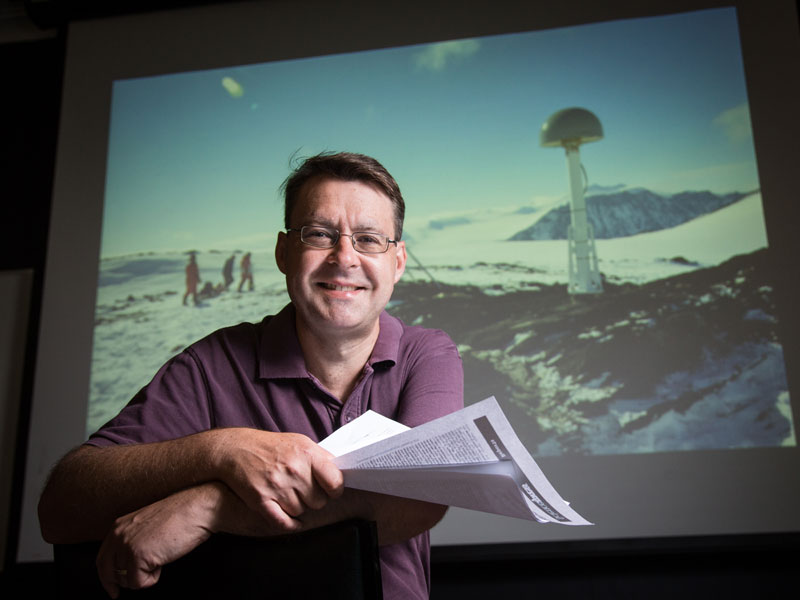

An Australian researcher who contributed to the first globally agreed estimate of Antarctica's impact on sea-level rise will reveal how the continent's collapsing ice sheets are contributing further to rising sea levels at a Royal Society of London public lecture tonight (21 April).
Professor of polar geodesy and ARC Future Fellow at the University of Tasmania, Matt King, will explain how scientists can now reliably estimate the rate of loss of land ice from Antarctica.
Prior to 2012, there were conflicting estimates suggesting that Antarctica's ice sheets were either growing or shrinking.
Professor King's research helped resolve one source of disagreement using satellites that measure changes in the Earth's gravity field from which the mass of land ice being lost can be calculated.
"We now know that the land ice of Antarctica is flowing into the ocean faster than snowfall replenishes it, with the continent losing 130 billion tonnes of ice each year," Professor King said.
"The big, grounded ice sheets of Antarctica are contributing to sea-level rises at double the rate they were in the 1990s.
"Recent scientific observations have confirmed that the irreversible collapse of the West Antarctic Ice Sheet will add an extra five metres to sea levels once the process is completed.
"The scientific community does not yet know how quickly the ice sheet will collapse and guesses range from 200 to 1000 years or more.
"However, we are in a good position to begin to find out, but only if stable, long-term support for fieldwork and scientists is secured."
Professor King said research in Antarctica needed to urgently move to where these major changes were occurring to find out how rapidly the ice was melting.
"We need research to be undertaken in some of the most remote parts of Antarctica - a long way from our current research stations," he said.
"Last month a region in East Antarctica was identified as being vulnerable to collapse, which could eventually add a further four metres of sea-level rise.
"We don't know if this will occur, and if it did, how fast it would happen.
"We know the hazard, we just do not know the degree of risk to us, our coastlines, our economy and our lifestyles, which is why we need to reach these remote areas to take measurements."
Professor King's 2015 Kavli Lecture is available online.